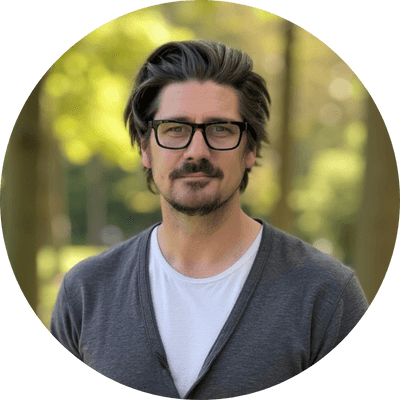The more who die, the less we care

by David Lloyd-Lewis, Co-founder & Chief Product Officer
Folktale co-founder David Lloyd-Lewis on the collapse of compassion—and how organizations can overcome it.
As a part of Folktale’s growth, I spend many of my evenings and early mornings connecting with leaders in the global development sector, from around the world.
In speaking to these leaders in communications, monitoring and evaluation and program management, I hope to better understand their challenges, and understand how Folktale’s solutions could empower communities’ stories could be heard and influence more inclusive decision making.
I’m always blown away by the generosity and willingness of these experts to give up their time to share insights with a random stranger from Australia, and on how the team at Folktale could do better.
In particular, one call I had with Sybella Wilkes in Geneva illuminated a phenomenon that I had begun to notice in many of my conversations.
We were at the height of the COVID-19 pandemic, with the statistics of cases and deaths on the daily news once again flashing before our eyes.
The numbers were unfathomable, and should have stressed the gravity of the challenges that lay ahead...yet, many of us admitted to feeling nothing more than a trivial “How shocking” response.
Those statistics were and are important. But for most people, the bigger the number, the more we can feel helpless. And this can stop us from being part of the solution.
At Folktale, we’ve been discussing this TEDx Talk from social scientist Paul Slovic titled, ‘The More Who Die, The Less We Care’. Here's the video:
“One death is a tragedy. One million is a statistic.”
Humans have a tremendous capacity for compassion. But in his Ted Talk, Slovic talks about how people often don’t respond to large scale problems logically.
Slovic says: “the indifference to mass suffering...is not the result of us being bad people.” Rather, certain mechanisms in the human brain are activated in the face of say, the statistic of one million deaths.
Firstly, the statistics and numbers that accompany issues like mass atrocities and large scale catastrophes “fail to create an emotional response in us,” Slovic says. Large numbers simply don’t resonate. Seeing one child dying from malnutrition, or seeing one victim of a natural disaster, activates people’s emotions. But those feelings don’t scale. If they did, we wouldn't be able to function under their weight.
Psychic numbing reflects the way that humans care deeply about one individual life—but that feeling does not double and triple with each subsequent life, but tapers off. And as those numbers grow, people often experience “compassion collapse”, where empathy actually decreases.
Secondly, knowing there are millions of people out there that need help makes people feel that they can’t make a difference. That sense of disempowerment makes it easier not to try to do anything at all.
Numbers are not enough
Understanding cognitive biases like psychic numbing and compassion collapse are key to overcoming them.
Humans want to connect with other humans. That’s why we use storytelling as our language to understand the world. It is story’s power to connect and create empathy that fuels us to want to help others.
We live in an age that prizes numbers and metrics, but those numbers and metrics rarely change hearts and minds. Even more dishearteningly, most of the reports that these statistics are buried in never make it to the light of day.
And indeed, in Sarah's and my work with the global development community and corporate world alike, the same issues have arisen again and again. Organizations were either spending time, money and resources on creating reports that nobody read, or were spending hundreds of thousands of dollars sending film production crews around the world to capture the voices of just a few.
That's why Folktale exists.
Instead of relying on numbers, organizations need to prioritize the stories of individuals. Stories, not statistics, resonate with people and move them to action.
Folktale has been built on this ethos, and aims to help organizations capture and tell stories directly from their communities.
Connect with Folktale to learn more about using your community's own stories to inform decision making.

